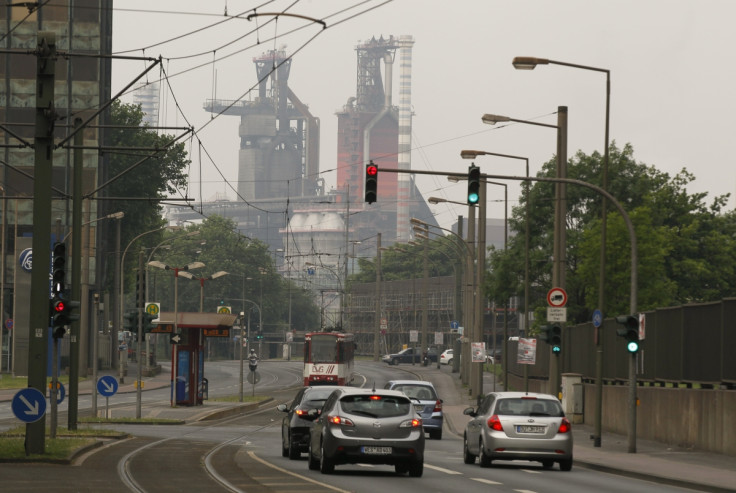Germany: Factory orders down and unemployment up as China demand weighs on economy

In the latest blow to Germany's economy, its factory orders fell in August, against market expectations, the Ministry of Economy in Berlin announced on Tuesday (6 October). Factory orders fell 1.8%, after a 2.2% drop in July. Factory orders were expected to stay flat or rise up to 1%.
Excluding the top-priced orders, the decline was even more steep, recording a 2.1% in August, while domestic factory orders were down 2.6%. The country's large manufacturing sector depends on China's demand, which has been slowing down due to the country's financial problems.
Germany's economy and active manufacturing industry is vital for other Euro countries, and its slowdown indicates that the global economy is recovering slower than expected. Volkswagen's crisis has undoubtedly weighed down the country's economy, holding 14% of the total amount of value listed on the DAX, and car manufacturing accounting for 22% of the country's economy.
The contraction in factory orders is not the only indicator that recovery is slowing down. On Monday (5 October), Markit's PMI for Germany fell to 54.1. Although still signalling growth, the number came from 55 on the index.
In September, unemployment in the European country unexpectedly jumped as well, increasing to 2.795m. According to the country's Federal Employment Agency, 4,000 more people were without work in September.
The slowdown in the German economy is largely due to foreign threats, with emerging markets struggling to grow significantly. Export to countries like China and Brazil are in danger when their national economies are slowing down.
On top of that, the effect of European Central Bank President Mario Draghi's quantitative easing programme on the EU economy has been limited by an environment of low oil and commodity prices.
© Copyright IBTimes 2025. All rights reserved.






















